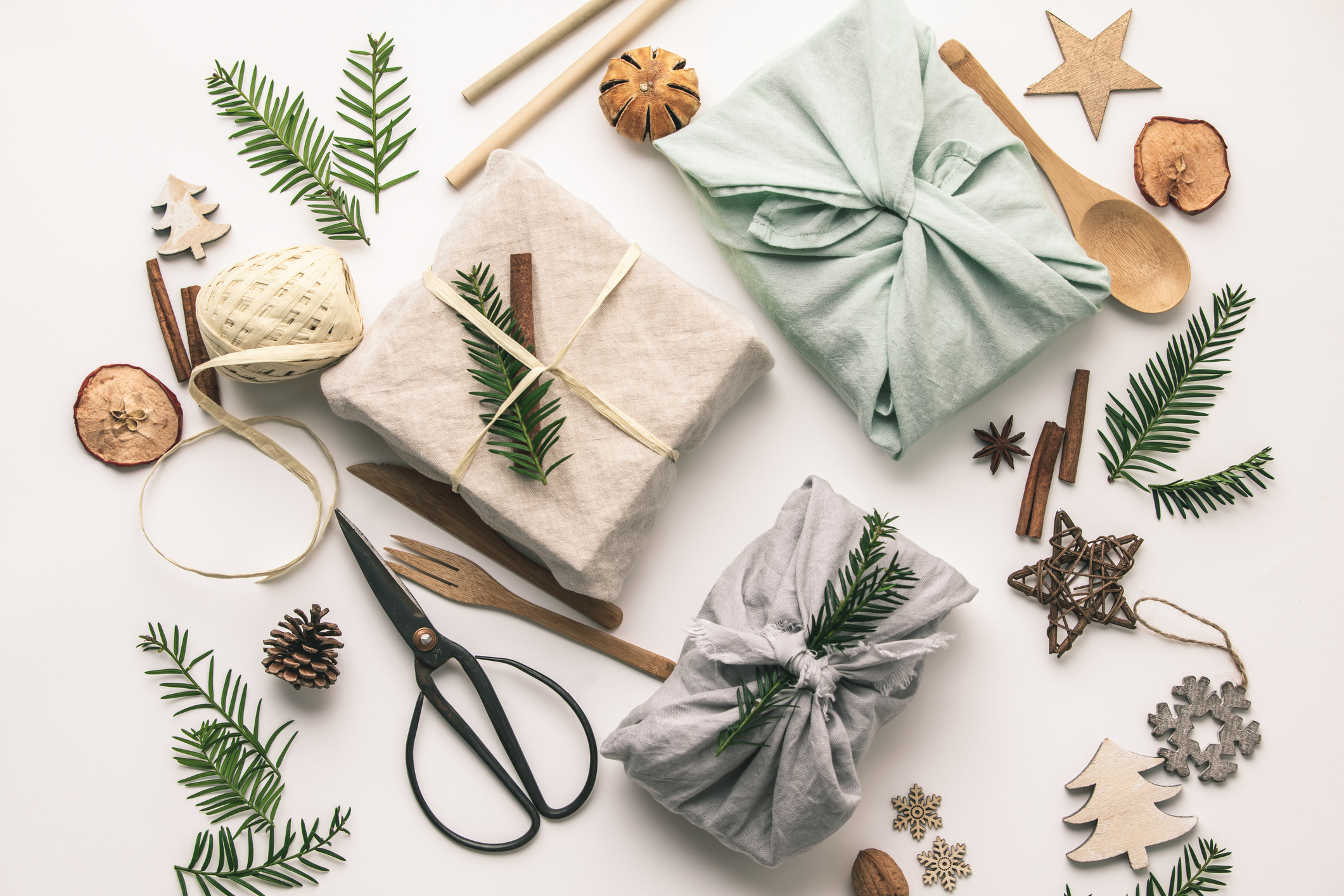During the height of the pandemic when people were spending all their time at home, many households repurposed spare rooms as home offices and created spaces for family members to hold online meetings, watch learning tutorials, or catch up with friends and family via Zoom. To set up these areas, people shopped online for “fast furniture” that now may no longer be needed or has not stood up well to daily use. Furniture from Overstock or Wayfair was not designed to last more than about 5 years, and now people can’t give away their mass-produced desks, chairs or patio furniture. Sadly, rather than repair broken pieces, many items wind up in landfill.
As we enter the holiday giving season, it can be tempting to pick up cheap “stuff” for friends and family to let them know they are in our thoughts and hearts. But after purging and decluttering, many people don’t want to accumulate more possessions – especially clothing or home goods that won’t age well. Normalizing secondhand gifting may be one solution that benefits both the pocketbook and the environment. Often vintage items are constructed to last and their quality and charm can make for a gift that will be cherished. Of course, the item must be in excellent used condition, and safety items like helmets or baby furniture and equipment should be purchased new.
Nostalgia also plays a role in gift-giving, especially for older adults who may enjoy a gift that harkens back to a happy time, when life seemed more simple. Consumable gifts of food or beverages are likely to be appreciated, as well as more meaningful items like a vintage estate brooch or antique carved box. A zero-waste kitchen or bathroom starter kit or coffee maker is also a great eco-friendly gift that adds beauty and usefulness to any home with little to no waste. Check out The Eco Hub for more ideas. Waste can be reduced further by using tea towels, scarves or a tablecloth as wrapping.
Gifts of experiences like concert or play tickets, language lessons, cooking classes, dance lessons or restaurant gift certificates are waste-free and often more meaningful. A massage or pedicure, especially if the gift includes spending time together, can also be a welcome activity to enjoy after the holidays. A DNA kit for your family member, or perhaps their dog, a professional organizer session, or a streaming video, music, or listening library subscription are all great gifts that add no clutter and generate no trash.
Buying secondhand is considered by younger generations not only to be more sustainable but also to have a cool factor. Vintage clothing is more unique and often made with better materials and workmanship – and any gentle wear only adds to the patina. Since it can be hard to judge another’s taste, a gift certificate or an afternoon of thrifting together at vintage shops may be most appreciated.
For 84 ideas that are thoughtful gifts while not producing clutter, check out our 2022 Gift Guide.






Add Your Voice
0 Comments
Join the Discussion